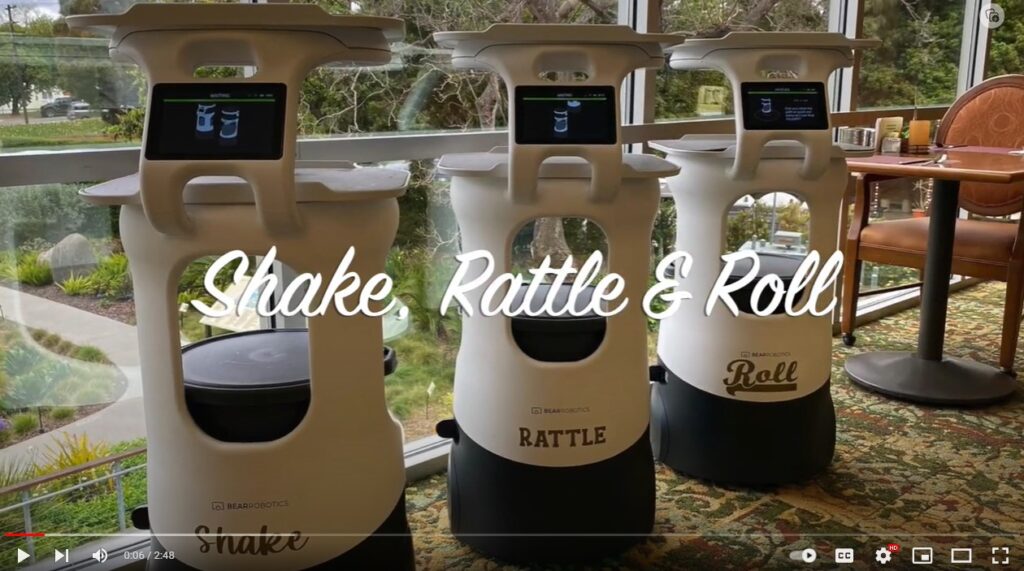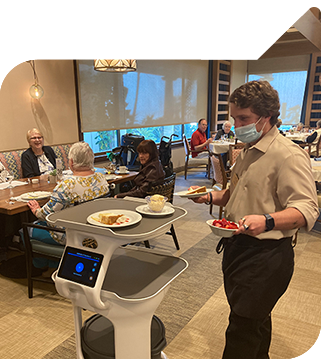Robots and the opportunities for human impact.
The COVID pandemic has created unprecedented challenges for the senior living workforce, and dining services have been particularly hit hard. As dining rooms reopened coming out of the pandemic, communities discovered a new set of pressures. Staffing shortages, determining the best way to support the well-being and satisfaction of staff and residents, and ensuring quality dining experiences became important concerns at our communities. In response to these pressures, an emerging and nascent trend using dining robots has been developing in senior care.
FPCIW wanted to explore how dining robot technologies could potentially support and enhance dining operations while improving the experience for both staff and residents. We launched the Bear Robotics ‘Servi’ Pilot in June 2022 in Front Porch communities at San Francisco Towers (SFT) and Casa de Mañana (CDM), and designed our pilot based on focus groups and interviews with residents and staff.
Overall, the pilot resulted in positive impacts for both staff and residents that tested the robots. We found significant increases of residents who “agreed” or “strongly agreed” that the robots positively impacted their dining experiences from pre-pilot to post-pilot:
- 65.4% of residents believed that the robots improved their overall dining experience (+35.8 points from baseline).
- Over half (51.2%) of residents felt that the robots allowed the staff servers to spend more quality time with the diners (+32.3 increase).
The pilot also revealed higher satisfaction and efficiency levels among staff:
- 51.3% of servers “agreed” or “strongly agreed” that they were excited about the robots by the end of the pilot, an increase from 40.0%.
- 58.0% of servers said that the robots allowed them to spend more quality time with residents, up from 48.0% before the pilot.
See this video created by our Fredericka Manor community about their robots Shake, Rattle and Roll!

One of the most important findings was that using the robots allowed more time for residents and staff to connect thereby boosting overall satisfaction for both groups. Many other benefits were noted by the pilot participants including: faster service, improved employee safety and wellbeing, reduced overtime, boost to employee recruitment and retention, and more fun and morale boost, just to name a few. The positive impact of dining robots to address staff challenges and satisfaction among servers and residents were apparent in our pilot study. To read the full final report, click here.
To download a PDF of this story, click here.


